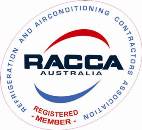Details have been released on the case studies that will be presented at the inaugural ATMOsphere Australia next month.
Fourteen case studies will be presented in total from major players within the industry: Mayekawa Australia, Scantec Refrigeration Technologies, Gordon Brothers Industries, SCM Frigo, Carter Retail Equipment, Heatcraft Australia, BITZER, KAV Consulting (Australia), Commercial Refrigeration Services (South Africa), EcoChill (New Zealand), Danfoss, Dorin, JCH Refrigeration Consulting (Australia) and The Natural Refrigerants Company (Australia).
According to ATMOsphere Australia’s official website, the case studies focus on a variety of topics, including but not limited to NH3 systems, CO2 systems and hydrocarbon chillers.
Mayekawa Australia’s case study, NH3 Heat Recovery High Temperature Heat Pumps in Australia and New Zealand, will examine how a NH3 heat recovery high temperature heat pump has been developed to recover the absorbed heat from an existing refrigeration plant.
Scantec Refrigeration Technologies’ case study, Energy Performances of Low Charge NH3 Systems in Practice, will focus on performance evaluations of approximately half a dozen low charge NH3 systems.
Gordon Brothers Industries’ case study, An Overview of the Largest NH3/CO2 Cascade Refrigeration System in Australia, will focus on the installation of an ammonia–carbon dioxide refrigeration system installed by Gordon Brothers Industries in the Northern Territory.
SCM Frigo’s case study, Transcritical CO2 Technology for Retail Solutions in Australia and New Zealand, will focus on various CO2 applications that SCM Frigo has been involved with in Europe and New Zealand.
Carter Retail Equipment’s case study, Self Contained Display Cases with a Hydrocarbon Refrigerant Running on a Water Loop for Heat Rejection, will focus on a system that they deployed throughout the UK in 2009, as well as a 2015 project in Australian supermarkets.
Heatcraft Australia’s case study, Ultra-Low Charge NH3/CO2 Cascade System in a Retail Environment, will focus on NH3/CO2 cascade systems in supermarkets, specifically on the experiences of the cascade systems in a US supermarket.
BITZER’s case study, Transcritical CO2 Combined Cooling System, will focusing on reviewing Bitzer’s Combined Cooling Systems that have been installed in Coles supermarkets.
KAV Consulting’s case study, Applying CO2 for all HVACR Applications Based on Energy Consumption of 800 Australian Supermarkets, will focus on the data obtained from 800 supermarkets on their energy consumption in relation to their floor space across a variety of climates, as well as a comparison of HFC and cascade systems.
Commercial Refrigeration Service’s case study, CO2 Transcritical Systems Operating in High Ambients, will focus on their installation of over 50 CO2 transcritical systems in South Africa and the CO2 training facility that they opened in Africa earlier this year.
EcoChill’s case study, Comparison of Synthetic and Hydrocarbon System for Kiwifruit Cold Store, will focus on a technical paper comparing a synthetic refrigeration system with a next-generation EcoChill hydrocarbon system for a Turners & Growers kiwifruit store in New Zealand.
Danfoss’ case study, CO2 Plant Evolution of F. Mayer Distribution Centre, will focus on F. Mayer Distribution Centre’s evolution over the six years since they hired Strathbrook Industrial Services for their system design.
Dorin’s case study, Transcritical CO2 Compressor for Economised Cycle, will focus on the installation of a four-cylinder CO2 transcritical compressor to mitigate the presence of fluids at high temperature at the inlet of the gas cooler, which can lead to reduced cooling capacities and poor energy efficiency.
JCH Refrigeration Consulting’s case study, R744 Claims the Middle Ground, will focus on a comparative study of several different systems for large commercial distribution centres containing R744.
The Natural Refrigerants Company’s case study, Opportunities for Hydrocarbon Chillers in Australia, will focus on hydrocarbon chillers with minimal charges as a practical solutions for various types of systems.
ATMOsphere Australia is being held in Melbourne on May 16, the day before ARBS 2016 kicks off. More information on the case studies can be found here and here. More information on ATMOsphere Australia can be found here.



